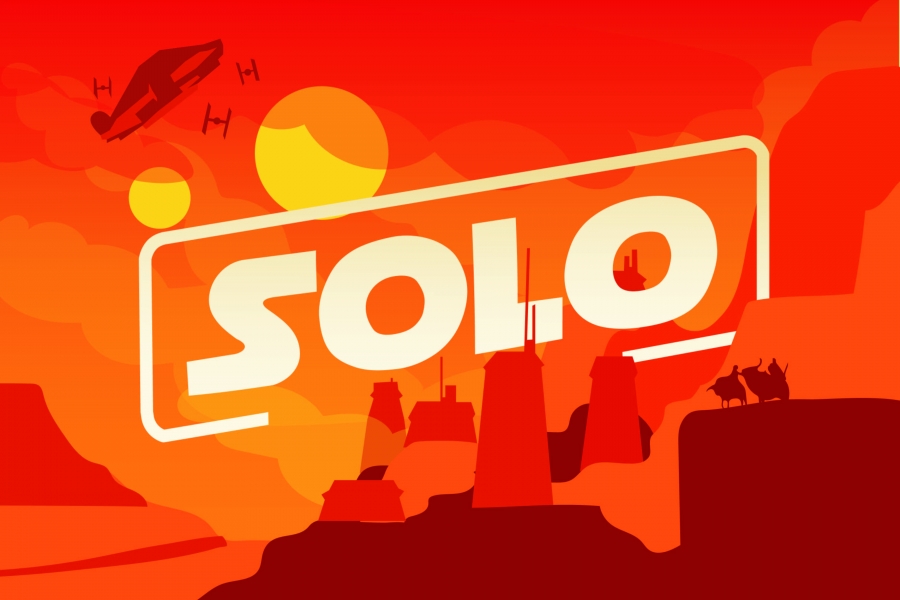
Action film’s reliance on spectacle bogs all characters
“Solo” is a Disney movie. It’s watched as a big label blockbuster and not much more — which isn’t necessarily a bad thing. The film’s $250 million budget doesn’t go to writing or actors, but to CGI and special effects. For a fan who watches Star Wars for the lasers and action, this movie is perfect. For a fan more interested in the characters and the galaxy, they’ll be asking for a little more.
The action and acting is not bad. While bogged down by questionable dialogue, the movie was fun to watch. The film begins in a speeder and keeps that speed throughout, rarely slowing for a breath. Yet much of the fun comes from the specific situation. Han Solo in the original trilogy is a lot of talk, often boasting about his past achievements, like the efficiency of the Millennium Falcon. Without giving them all away, it’s nice to see scenes paying homage to those achievements (mentioning some and playing out others), foreshadowing the smooth scoundrel Solo will become by showing his rise to smuggler fame.
Focusing the budget on spectacle, things like CGI and flashy design noticeably damage other parts of the film. Star Wars has never had incredible scripts, but “Solo’s” script really walks the line between bad and awful. Actors who have shown merit in other works — people like Woody Harrelson, Donald Glover and Emilia Clarke — struggle to overcome the stiff dialogue.
On a basic level, “Solo’s” script suffers from an overload of exposition. The plot isn’t implied or inherent in the characters’ actions, but often laid out too directly. Kira, played by Emilia Clarke, is plagued with one such line early in the film: congratulating Han on acquiring item X and how it allows them to accomplish goal Y. Having the plot handed to me as a rope to lead to me through the film, saying “hey come this way,” is unexciting. Plots are best unveiled as action ensues, not outlined before they begin, which makes for stale moments.
Unfortunately, the largest damage the script inflicts is on Han Solo. Han starts as an arrogant outlaw, and, when the credits role, he is an arrogant outlaw. The stiff nature of dialogue allows little room for character development, an opportunity established yet never capitalized upon.
Early in the film, a minor character bites the dust with one of the film’s strongest lines, warning Solo to not die alone. The success of this line isn’t in the actual structure, but in its function. It opens up an internal struggle for Solo; he is a smuggler constantly on the lam, a lonely life that leaves many of its runners dead before happy. The struggle between being solo (pun intended) and finding family is key to Han Solo, shown throughout the original trilogy with his and Leia’s awkward love dynamic. It’s disappointing to see that dichotomy opened and unresolved in “Solo.” Exploring that avenue has potential to show the complexity of Han Solo and his internal struggle between the lonely, law-skipping scoundrel he sees himself as and the stoic yet sympathetic hero other characters dub him.
Maybe someday later, Solo’s humanity rather than his wit will shine through. But for now, “Solo” isn’t the film for that. It maintains viewers’ attentions through the flash of blasters, shoveling its shallow characters under the rug. It’s entertaining, but with a reliance on spectacle and not script, “Solo” exists as another mediocre addition to Disney’s growing Star Wars behemity.
Written by: Nicolas Rago — arts@theaggie.org



